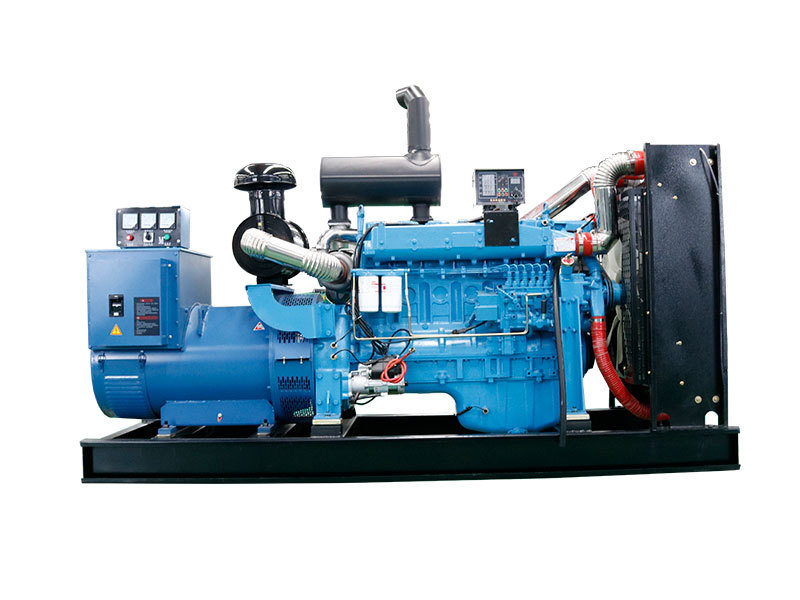
Losing power can be a major inconvenience, disrupting daily life and potentially causing damage to appliances and electronic devices. But with the right generator, you can keep your essential systems running and maintain a sense of normalcy during an outage. So, what generator can run a house? The answer depends on your specific needs and power requirements.
Understanding Your Power Needs
Before diving into generator options, you need to determine how much power your household actually needs. Create a list of essential appliances and devices you want to power during an outage, such as refrigerators, freezers, sump pumps, furnaces, and lights. Check the wattage rating on each item (usually found on a label on the back or bottom) and add them up. This total wattage will help you determine the appropriate generator size. Don't forget to factor in starting wattage, which is the initial surge of power required to start certain appliances like refrigerators and air conditioners; this can be significantly higher than the running wattage.
Types of Generators: Portable vs. Standby
Two main types of generators are suitable for home use: portable and standby. Portable generators are smaller, more affordable, and can be moved as needed. They're great for powering a few essential appliances, but you'll need to manually connect them and refuel them frequently. Standby generators, also known as whole house generators, are permanently installed and automatically switch on when the power goes out. These offer greater convenience and power capacity but come with a higher price tag. Choosing between a portable generator and a standby generator (also known as a whole house generator) often depends on your budget and power requirements. Which option sounds more appealing to you?
Sizing Your Generator: Watts Up?
Generator size is measured in watts. As discussed earlier, knowing your total wattage needs is crucial for selecting the right size generator. A generator that's too small won't be able to power everything you need, while one that's too large will be more expensive to operate and potentially less efficient. Consult with a qualified electrician to ensure you choose a generator that meets your specific home’s electrical requirements. What size generator are you considering for your home, and why?
Fuel Options: Gas, Propane, or Diesel
Generators run on various fuels, including gasoline, propane, and diesel. Gasoline is readily available but has a shorter shelf life than other fuels. Propane is a cleaner-burning option and can be stored for extended periods. Diesel is known for its efficiency and durability but can be more expensive. Consider fuel availability, storage capacity, and environmental impact when choosing a fuel type for your generator.
Installation and Maintenance: Professional Help Recommended
Proper installation is critical for the safe and efficient operation of your generator. For standby generators, professional installation is essential. They need to be connected to your home's electrical system and fueled by a natural gas line or propane tank. Portable generators also require careful setup and adherence to safety guidelines. Regular maintenance, including oil changes and filter replacements, is crucial for ensuring the longevity and reliability of your generator.
Choosing the Right Generator for You
Choosing the right generator involves carefully considering your power needs, budget, fuel preference, and installation requirements. If you need a cost-effective solution for powering a few essentials during short outages, a portable generator might be sufficient. However, if you want seamless, whole-house power during extended outages, a standby generator is the way to go. Thinking about the long term and potential power outage scenarios will help you make the best decision.
Key Features to Consider
When shopping for a generator, look for features like automatic voltage regulation (AVR) for stable power output, low-oil shutdown protection to prevent engine damage, and a user-friendly control panel. Noise levels are another important consideration, especially for residential areas. Some generators offer quieter operation than others. Exploring these features will help you narrow down your options and find the perfect fit for your needs.
The Benefits of a Home Generator
Investing in a home generator offers significant peace of mind. Knowing that you'll have power during outages provides security and comfort for you and your family. It can also protect your home from potential damage caused by power surges or extended power loss. Furthermore, a generator can increase the value of your property.
Making the Investment: Long-Term Value
While a home generator represents a significant investment, it's important to view it as a long-term investment in your home’s security and resilience. The cost of a generator is often offset by the potential cost of repairs due to power outage damage, not to mention the invaluable peace of mind it provides.
Ready to Power Up?
Now that you have a better understanding of what generator can run a house, it's time to take action. Start by assessing your power needs, researching different generator models, and consulting with a qualified electrician. By taking these steps, you can ensure you're well-prepared for any power outage.






